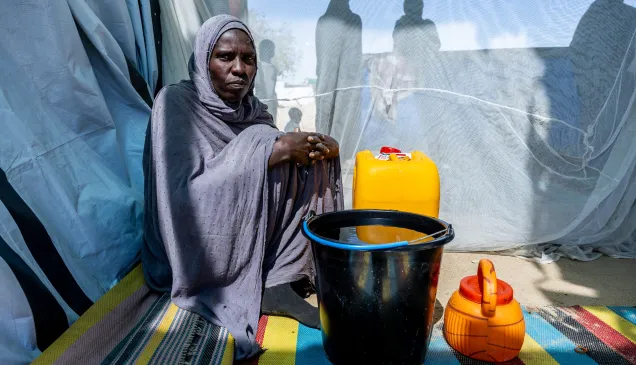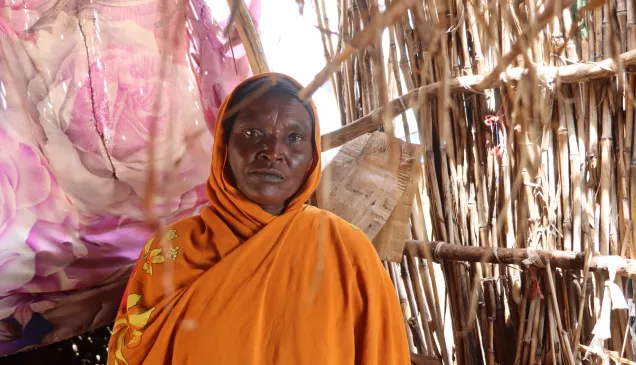The Khartoum Cheshire Home (KCH) is a busy place – close to 50 babies under the age of five receive treatment here every week.
Supporting medical services and physical rehabilitation in Sudan
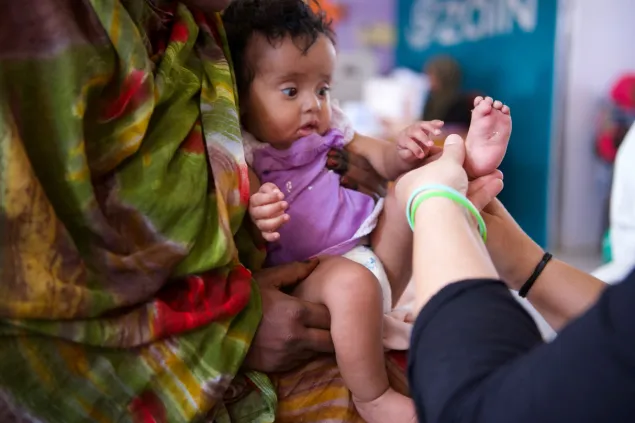
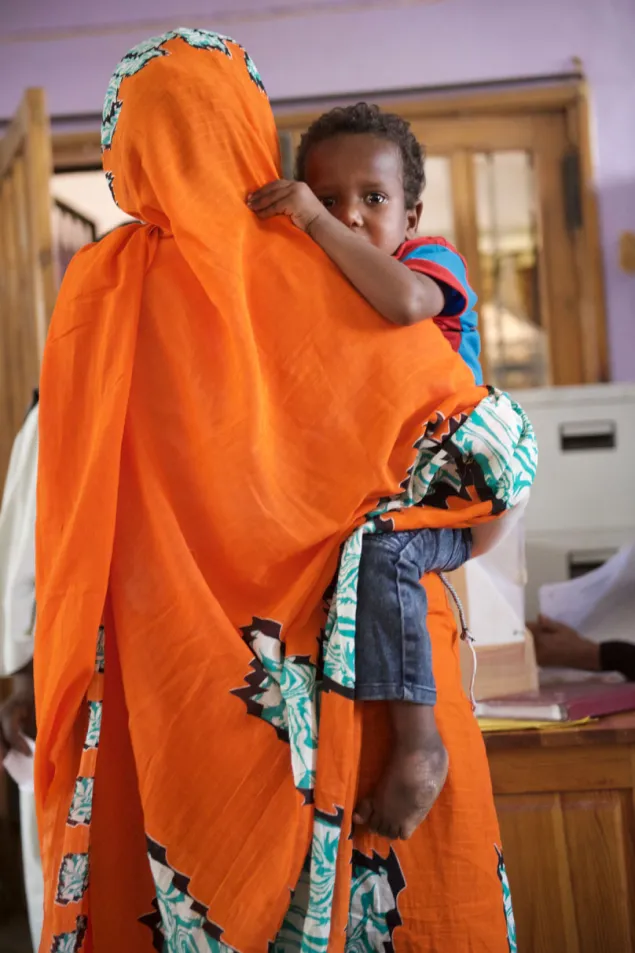
Since 2012, the ICRC has been providing technical and financial support to KCH to ensure quality treatment and affordable medical services.
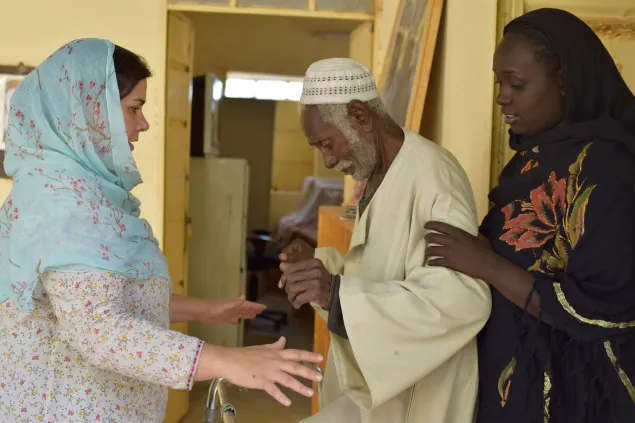
Physical rehabilitation was one of the ICRC's first activities in Sudan, starting in Khartoum in 1990. Today, almost 30 years later, there are seven other ICRC orthopaedic centres, one each in Dongola, Kassala, Al Gedarif, Nyala, Damazine, Kadugli and El Obeid, providing them with raw materials, staff training and technical assistance.
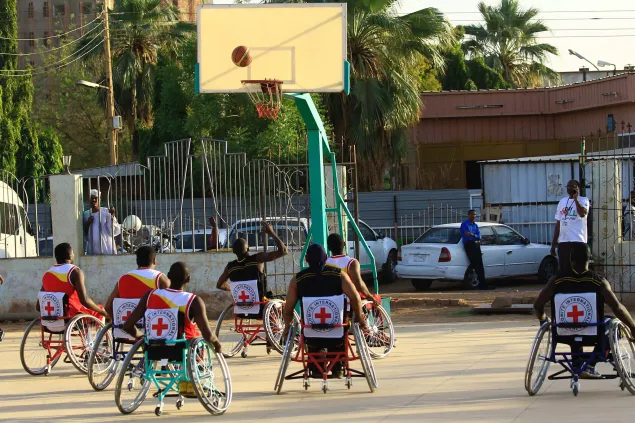
Sports has become one of the most visible aspects of ICRC services for persons with disability, combining physical rehabilitation and social reintegration. The ICRC promotes wheelchair basketball and has donated wheelchairs sufficient enough to establish two teams each for both males and females respectively. Teams of both gender compete in tournaments in coordination with the Sudanese Disability Challengers Organization and the Khartoum Cheshire Home (KCH).
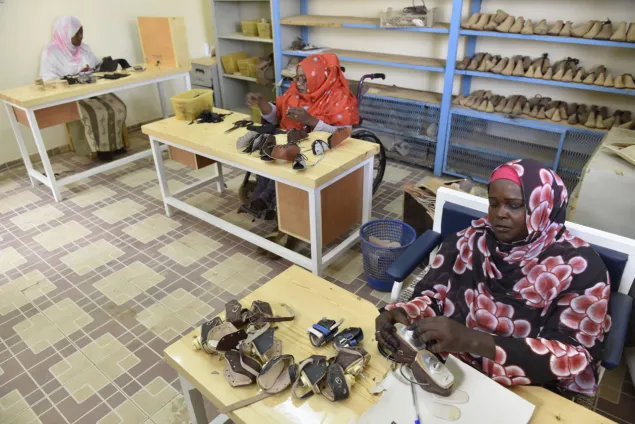
The physical rehabilitation of persons with disability is only a first step towards their social reintegration, so the ICRC's physical rehabilitation programme champions the rights of people with disabilities to live an active role in society through education, employment, vocational training and sports.
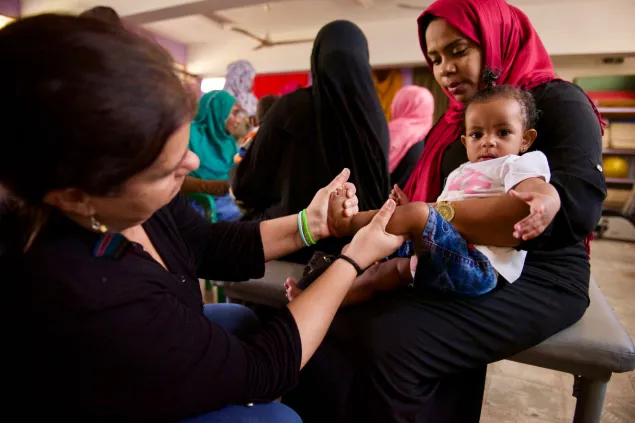
An ICRC Physiotherapist examines a baby with clubfoot. Babies born with clubfoot have one or both feet facing inwards and downwards, preventing them from placing the soles of their feet flat on the ground. If detected early enough, it can be treated with rehabilitation and no surgery is required.
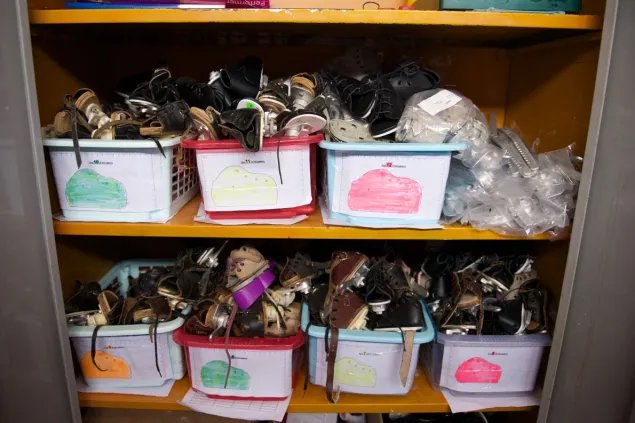
The foot abduction brace is a special shoe, which a child with club foot needs to wear as part of the treatment. The ICRC supports the Khartoum Cheshire Home to locally make the shoes. A child comes for a new fitting every couple of months.
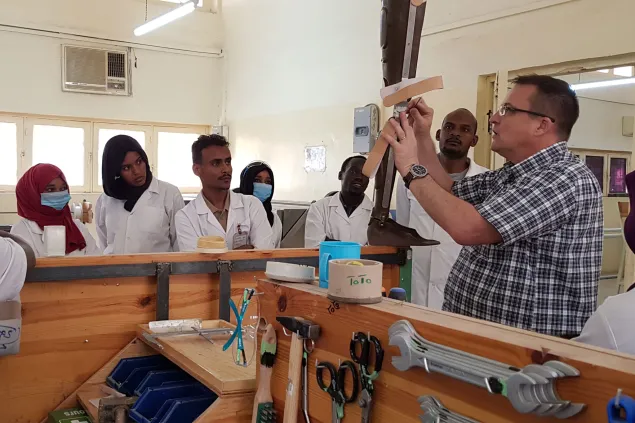
An ICRC orthopaedic technician helps equip students with the technical know-how required to manufacture and fit a prosthetic leg. The ICRC has been supporting the Sudanese National Authority of Prosthetics and Orthotics (NAPO) since 1990, and supports a three-year diploma training in Prosthetics and Orthotics.

